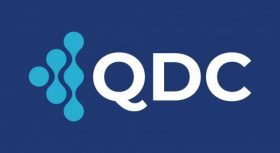
QDC Syllabus
The objective of the course is to develop and enhance fundamental skills within the role of quantitative developer.
Module 1: Python for FinanceTHE LINGUA FRANCA OF DATA SCIENCE, MACHINE LEARNING, AND FINANCE
Module 2: Databases in finance – Kdb+/qAN UNRIVALED TOOL FOR BIG DATA AND HIGH-FREQUENCY DATA
Module 3: C++ fundamentals with use cases from financePERFORMANCE, PRODUCTION STABILITY, AND PORTABILITY
Module 4: Data Structures and Algorithms in C++THE CORE OF COMPUTING
Module 5: Designing algorithmic trading applicationsSTATE-OF-THE-ART CONTENT
|
| Module 1 | 1 | Python for Finance | Introduction to Python |
| Module 1 | 2 | Python for Finance | Data Analysis in Python |
| Module 1 | 3 | Python for Finance | Analysis of financial data using Python |
| Module 1 | 4 | Python for Finance | Financial market case studies using Python |
| Module 1 Test
|
|||
| Module 2 | 5 | Databases in finance – KDB | Overview of kdb+/q |
| Module 2 | 6 | Databases in finance – KDB | Foundation of the q programming language |
| Module 2 | 7 | Databases in finance – KDB | Working with tables |
| Module 2 | 8 | Databases in finance – KDB | Kdb+/q for big data and machine learning |
| Module 2 | 9 | Databases in finance – KDB | Kdb+/q in practice |
| Module 2 Test
|
|||
| Module 3 | 10 | C++ fundamentals with use cases from finance | C++ introduction |
| Module 3 | 11 | C++ fundamentals with use cases from finance | Introduction to OOP in C++ |
| Module 3 | 12 | C++ fundamentals with use cases from finance | Defining your own structures in C++ |
| Module 3 | 13 | C++ fundamentals with use cases from finance | Introduction to Standard Library |
| Module 3 Test
|
|||
| Module 4 | 14 | Data Structures and Algorithms in C++ | Analysis Tools, Recursion and Sorting |
| Module 4 | 15 | Data Structures and Algorithms in C++ | Arrays, Linked Lists, Stacks and Queues |
| Module 4 | 16 | Data Structures and Algorithms in C++ | Trees and Graphs |
| Module 4 | 17 | Data Structures and Algorithms in C++ | Git and Git Hub Trees and Graphs |
| Module 4 Test
|
|||
| Module 5 | 18 | Designing algo-trading applications | The hardware of electronic trading |
| Module 5 | 19 | Designing algo-trading applications | The networking of electronic trading |
| Module 5 | 20 | Designing algo-trading applications | Low-latency programming |
| Module 5 | 21 | Designing algo-trading applications | Event-driven architectures |
| Module 5 | 22 | Designing algo-trading applications | The workflow of a trading platform |
Module 5 Test
| EXAM PREP SESSION: | 3rd October 2024 |
| FINAL EXAMINATION: | 17th October 2024 |
Final Examination:
Examination Preparation Week: Thursday 27th March 2025
Examination Date: Thursday 10th April 2025
- Candidates will sit a formal examination on a computer. The exam is taken online by students globally.
Marking Classifications:
Students achieving an overall mark of 70% or higher will be awarded the Certificate with Distinction. The total mark is calculated as equally weighted marks for module tests and final exam.
- Distinction: 70-100%; US equivalent: A/A+
- Merit: 60-69%; US equivalent: B+/A
- Pass: 50-59%; US equivalent: B-/B